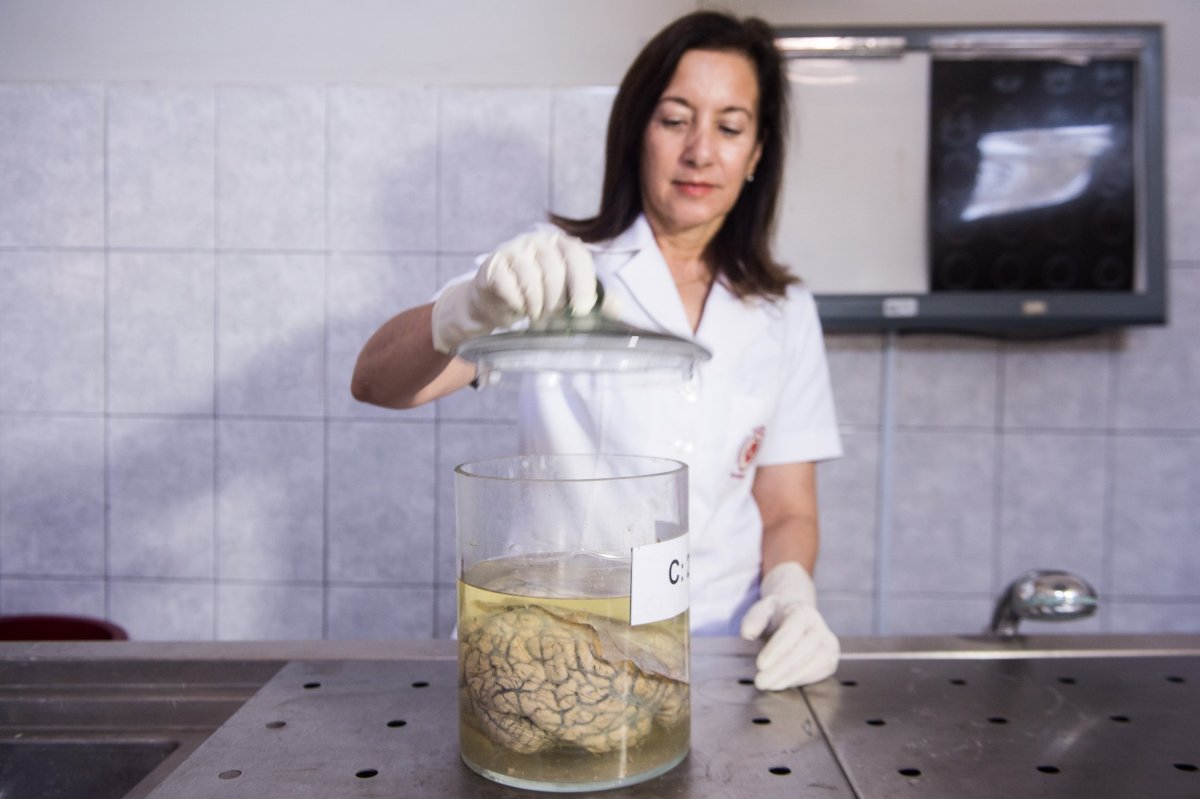Researchers have reversed symptoms of Alzheimer's disease in fruit flies by adjusting the production of certain enzymes. The finding may open doors to exploring epigenetics as a potential avenue for Alzheimer's disease treatments.
Drexel University's Felice Elefant, an associate professor in the biology department, and Ph.D. biology student Priyalakshmi Panikker analyzed ways in which enzyme manipulation could adjust gene expression and affect symptoms of Alzheimer's disease in fruit flies. Their study was published online in The Journal of Neuroscience.
Past research revealed that an enzyme called HDAC2 is necessary for neural development and that uneven amounts of this enzyme may affect certain gene expression. These changes in gene expression are known as epigenetics changes, and the enzymes that induce the changes are referred to epigenetic enzymes.
Related: Alzheimer's disease is completely reversed by removing just one enzyme in new study
Epigenetic changes may lead to some of the cognitive impairments seen in Alzheimer's disease patients. However, this new study is the first to show that there is a particular enzyme that acts as a counterbalance to HDAC2's effect on Alzheimer's disease symptoms. This counterbalance enzyme is called Tip60 HAT.

"We are the first group that shows that there is a particular HAT that seems to counterbalance HDAC2 in terms of regulating these genes that are involved in learning and memory," Elefant told Newsweek.
The team tested this enzyme counterbalance on fruit flies to see if the disruption of HDAC2 enzyme levels led to early Alzheimer's disease symptoms, and if the restoration of regular levels then reversed these symptoms. The flies used in the study were genetically altered to express many of the characteristics associated with Alzheimer's disease in humans.
Thousands of flies were used in the study; these insects were created by outside researchers not affiliated with this study.
Related: Alzheimer's disease starts in childhood, with symptoms found in babies less than a year old, study shows
"[The flies] really exhibit all the phenotypes that a human Alzheimer's disease person would exhibit," said Elefant.
Tip60 HAT is paired with HDAC2, and both work to control genes linked to learning and memory. However, when there is too much HDAC2, genes associated with learning and memory are repressed. As a result, the fly struggles to learn new skills. The team altered the Alzheimer's flies while they were still eggs so they would express extra Tip60 HAT—the counterbalance enzyme.
When the scientists added extra Tip60 HAT to the flies, the balance between Tip60 HAT and HDAC2 was restored, as were the flies' memory and learning skills. The team was even able to pinpoint exactly which genes were affected by the changes in epigenetic enzyme levels.
What makes this finding significant is that the researchers were able to look at early epigenetic changes associated with Alzheimer's disease that occur before the onset of some common characteristics, such as brain plaque buildup. This is something that cannot be done in human models, as researchers can examine the brains of Alzheimer's patients only after they have died and the disease has had time to progress.
In addition, the researchers observed postmortem brain samples of humans with Alzheimer's disease and confirmed that TIP60 is significantly decreased in such brains.
Elefant expressed great hopes for her research, suggesting that it may lead to both therapeutic implications and enable researchers to identify early biomarkers for the disease.
"We hypothesize that there are many genes being misregulated early in the neurodegenerative process," said Elefant. "If we can characterize them, we can see what are these subtle changes that are happening early so that they can serve as biomarkers."
Her team was just granted funding from the National Institutes of Health and the National Institute of Neurological Disorders and Stroke and plans to use this funding to continue their research.
Uncommon Knowledge
Newsweek is committed to challenging conventional wisdom and finding connections in the search for common ground.
Newsweek is committed to challenging conventional wisdom and finding connections in the search for common ground.
About the writer
To read how Newsweek uses AI as a newsroom tool, Click here.








